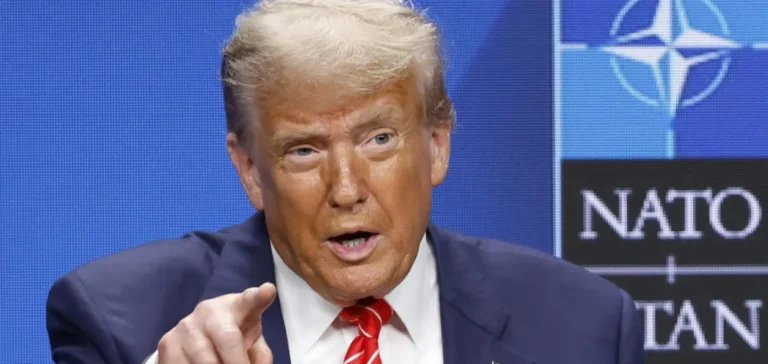Donald Trump stated he is prepared to impose new economic measures against the Russian Federation, provided that all member countries of the North Atlantic Treaty Organization (NATO) cease their imports of Russian oil entirely. This stance was published on the Truth Social platform, where the US president frequently addresses his political base and outlines his diplomatic intentions.
“I am ready to take significant sanctions against Russia, once all NATO countries have also decided to do so and when all NATO countries have STOPPED BUYING OIL FROM RUSSIA,” wrote Donald Trump. This statement comes as several Central European countries continue to procure Russian crude despite the restrictions imposed since the invasion of Ukraine in 2022.
Pipelines maintain an energy link with Moscow
The European Union has implemented an embargo on seaborne imports of Russian oil, but the Druzhba pipeline remains partially active. This pipeline, temporarily exempt from sanctions, continues to supply Hungary and Slovakia with Russian crude. These flows persist despite Ukrainian strikes aimed at disrupting Russia’s energy logistics.
The Czech Republic announced in April that it had halted its imports of Russian crude after investing €60mn ($64.3mn) to secure alternative supply routes. This move ends a 60-year energy dependency, while other countries remain bound by existing delivery contracts through established infrastructure.
Trump proposes using tariffs against Beijing
Donald Trump also suggested that NATO member states increase tariffs on Chinese imports by 50 to 100% for the duration of the Russia-Ukraine conflict. He believes such an economic measure would deter indirect support provided by China to Russia.
Despite Western sanctions, Russia continues to export significant volumes of oil and gas to partners such as China, India, and Turkey. It also retains a notable market share in Europe through liquefied natural gas (LNG), particularly in France. The persistence of these flows has sparked criticism over the effectiveness of the European restrictions in place.
Donald Trump’s remarks echo a conversation held in early September with several European leaders, during which he reportedly expressed being “very unhappy” with the continued European purchases of Russian crude. No coordinated NATO plan on the matter has been announced to date.






















